



Kimberly B. Stratton






TO PIERRE, FOR HIS PATIENCE THROUGH ALL THIS, AND MY PARENTS, WHO MADE IT POSSIBLE

iX
xiii
xvii
177

 'arcing the Witch explores the social background of and motivations behind powerful and enduring stereotypes of the magician, sorceress, and witch. In the ancient world accusations of magic could carry the death penalty or, at the very least, marginalize the person or group they targeted. Accusations, however, always arise from somewhere: they draw on and reinscribe fears of the Other, ideals about the Self, and conceptions of antisocial behavior. By these means, accusations of magic and stereotypes of magicians or witches mirror social values and accepted notions about the way things should be among the group employing this rhetoric. These ideas will vary from society to society and, concomitantly, so will the images and ideas associated with magic. Naming the Witch examines the earliest manifestations of stereotypes of witches and sorcerers in Western literature, seeking to understand the specific contexts that gave rise to these stereotypes in Western history. This book challenges universalizing generalizations and reductionist approaches to magic by seeking instead to understand the factors that contributed to the emergence of specific stereotypes at particular moments in time.
'arcing the Witch explores the social background of and motivations behind powerful and enduring stereotypes of the magician, sorceress, and witch. In the ancient world accusations of magic could carry the death penalty or, at the very least, marginalize the person or group they targeted. Accusations, however, always arise from somewhere: they draw on and reinscribe fears of the Other, ideals about the Self, and conceptions of antisocial behavior. By these means, accusations of magic and stereotypes of magicians or witches mirror social values and accepted notions about the way things should be among the group employing this rhetoric. These ideas will vary from society to society and, concomitantly, so will the images and ideas associated with magic. Naming the Witch examines the earliest manifestations of stereotypes of witches and sorcerers in Western literature, seeking to understand the specific contexts that gave rise to these stereotypes in Western history. This book challenges universalizing generalizations and reductionist approaches to magic by seeking instead to understand the factors that contributed to the emergence of specific stereotypes at particular moments in time.
In order to uncover the background and motivations for stereotypes of magic, Naming the Witch examines literature from four different historical periods and cultures in the ancient world: classical Athens, early imperial Rome, pre-Constantine Christianity, and rabbinic Judaism. Through this comparative and cross-cultural approach, Naming the Witch illuminates certain aspects of ancient magic that have, so far, gone unnoticed-it highlights the differences between patterns of representing magic in various an cient cultures and explores the relationship between these stereotypes of magic and the social factors that contributed to shaping them. It reveals magic to be a form of discourse (i.e., a constellation of ideas, practices, and institutions) that functions differently depending on the social context. This discourse, I argue, emerged in fifth-century Athens, following the Persian wars, and contributed to the construction of xenophobic ideas about the un-Greek and uncivilized Other. This discourse of alterity then passed to Rome and the rest of the Hellenized world during the Hellenistic period where it adapted to and reflected local social concerns. In each situation, magic constitutes a discursive formation that negotiates power by operating as a foil for claims to legitimacy and authority.
Existing scholarship on ancient magic falls largely into four categories: i. The first includes works that document material evidence for ancient ritual activities commonly classified as "magic." Such studies generally present the material without extensively commenting on or evaluating its social history.' 2. Second are works that attempt to reconstruct the social history of ancient magic with reference to either literary descriptions of magic and magicians and/or the material evidence mentioned just above.2 These analyses sometimes uncritically accept representations of magic that have at their base ideological motivations and vilifying stereotypes. 3. Third is scholarship that recognizes the pejorative connotations of magic in both ancient and modern usage and, for this reason, questions the validity of continuing to use magic as a heuristic category in scholarship at all.' These scholars argue that uncritically accepting magic as a descriptive term in ancient texts reinscribes polemical labels and dangerous stereotypes, but they can also ignore the evidence that certain people did engage in practices perceived as impious, threatening, and antisocial by members of their society. In other words, some ancient people knowingly and perhaps subversively engaged in ritual activities they themselves considered to be magic. 4. The final category of scholarship on magic responds to the conundrum posed by the third group. These scholars attempt to resolve the tension between continuing to study magic, despite the negatively charged baggage (both ancient and modern) that the term carries, and rejecting the term altogether.4
Naming the Witch falls into this final category. I critically read representations of magic with an awareness of their ideological motivations and the rhetorical strategies that support and shape them. That is, I continually ask: "Whose interest do they serve?" But I also take seriously the archaeological evidence for practices that were commonly regarded as magic by people in the ancient world (i.e., rituals that violate social mores and traditions of piety in order to harm or gain control over someone else). Stereotypes do not emerge without reason; they reflect, at the very least, the perception of (real or imagined) danger. To dismiss the existence of magic altogether as just a form of slander ignores the very real relationship between accusations and fear, stereotypes and social tension. It is the source of these stereotypes that preoccupies my attention in Naming the Witch, using representations of magic as the tool to unveil struggles over defining authority and Otherness, legitimate power and unacceptable behavior in the four ancient societies that are the subjects of this study.
This research seeks to complicate existing ideas about magic by showing magic to be contingent-existing in different ways in different placeswhile at the same time I strive to show the continuity of magic as a discourse as it passed from Greece to the rest of the Mediterranean. Certainly, ideas about dangerous supernatural power, evil female demons, or strange foreigners exist in many different cultures in diverse times and places. What I argue is that labeling all these magic or witchcraft and attempting to identify a single explanation for them confuses important differences and cultural distinctions. Instead, I focus on understanding how the particular constellation of ideas and Othering devices known as magic developed in Western culture. I argue that magic has a definite history, the understanding of which will illuminate the process of marginalizing groups of people and negotiating power in culturally determined ways.
Next page
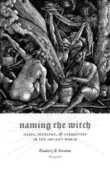
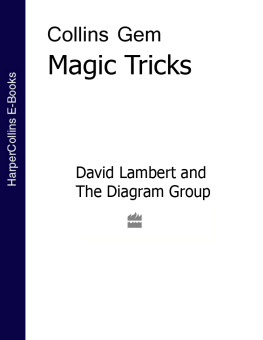


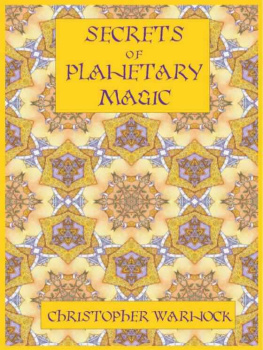
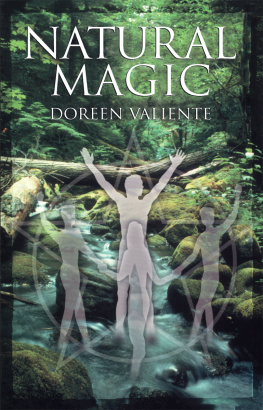

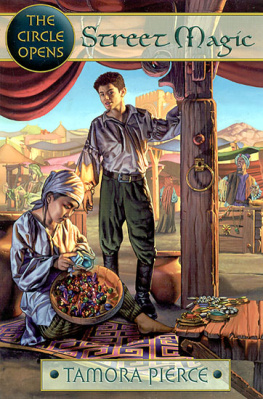
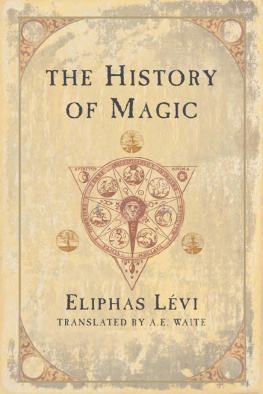












 'arcing the Witch explores the social background of and motivations behind powerful and enduring stereotypes of the magician, sorceress, and witch. In the ancient world accusations of magic could carry the death penalty or, at the very least, marginalize the person or group they targeted. Accusations, however, always arise from somewhere: they draw on and reinscribe fears of the Other, ideals about the Self, and conceptions of antisocial behavior. By these means, accusations of magic and stereotypes of magicians or witches mirror social values and accepted notions about the way things should be among the group employing this rhetoric. These ideas will vary from society to society and, concomitantly, so will the images and ideas associated with magic. Naming the Witch examines the earliest manifestations of stereotypes of witches and sorcerers in Western literature, seeking to understand the specific contexts that gave rise to these stereotypes in Western history. This book challenges universalizing generalizations and reductionist approaches to magic by seeking instead to understand the factors that contributed to the emergence of specific stereotypes at particular moments in time.
'arcing the Witch explores the social background of and motivations behind powerful and enduring stereotypes of the magician, sorceress, and witch. In the ancient world accusations of magic could carry the death penalty or, at the very least, marginalize the person or group they targeted. Accusations, however, always arise from somewhere: they draw on and reinscribe fears of the Other, ideals about the Self, and conceptions of antisocial behavior. By these means, accusations of magic and stereotypes of magicians or witches mirror social values and accepted notions about the way things should be among the group employing this rhetoric. These ideas will vary from society to society and, concomitantly, so will the images and ideas associated with magic. Naming the Witch examines the earliest manifestations of stereotypes of witches and sorcerers in Western literature, seeking to understand the specific contexts that gave rise to these stereotypes in Western history. This book challenges universalizing generalizations and reductionist approaches to magic by seeking instead to understand the factors that contributed to the emergence of specific stereotypes at particular moments in time.